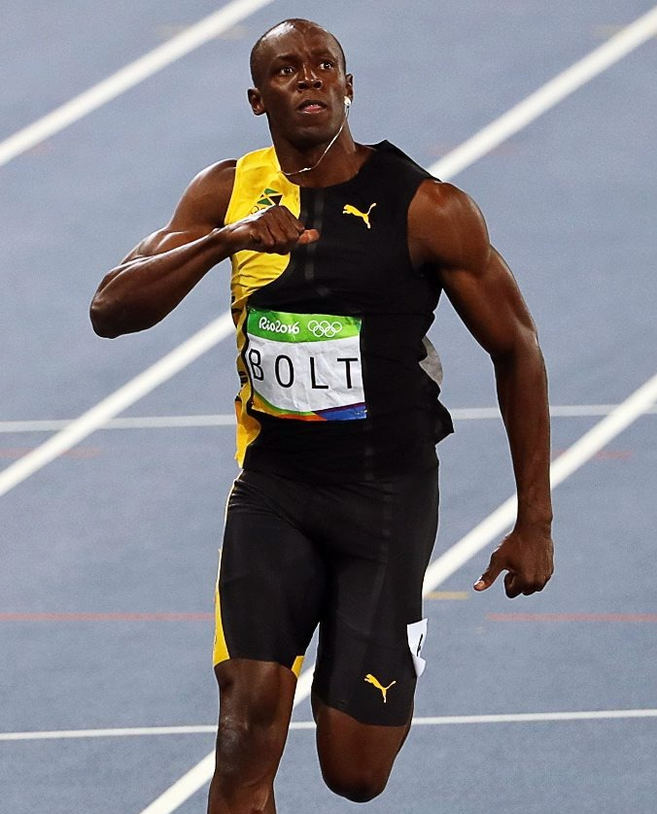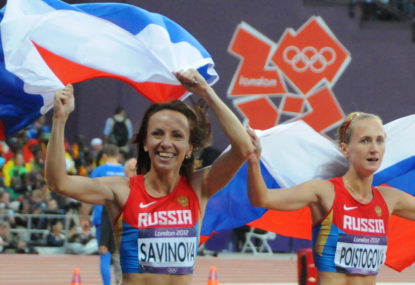Edwin Flack wins the 800 and 1500 metre track double at the first modern Olympics in 1896 and is later revered as an Australian hero. Russia is banned from the 2018 Winter Olympics for an alleged doping program. What’s the connection?
Well, Australia was four years from federation when the English-born, Australian-raised Flack won in Athens, a double unrepeated until New Zealand’s Peter Snell in Tokyo, 64 years later.
Flack travelled for six days by boat and train from London, where he was working for an accountancy firm, to reach the Greek capital and was seasick along the way.
When he won gold, he was an individual stepping up to receive his medals, wearing his Melbourne Grammar School uniform.
They were running faster times for the same events in Victoria than Flack ran in Athens, such was the nature of the infant Games. No matter; he remains a hero, a trackblazer, and was a much-loved figure when he returned to Victoria.
The Russian connection? Flack was continuing the spirit of the ancient Games; he ran as an individual, not as a warrior in some unspoken national medals war.
Though Russia has been banned from the Winter Olympics, Russians will be allowed to compete as individuals, just like Flack.
Could this tell a tale of the tape, a way to maintain the Olympics’ survival?
National uniforms banned, and competitors allowed to wear their favourite school, footy, cricket, marbles uniforms to opening and closing ceremonies. Play their favourite instruments, balalaikas, venas, didgeridoos, kazoos.
Wear their favourite school or sporting uniforms on to the medals dais, allowed to choose a school or favourite song of their choice as accompaniment.
Bring back the original concept of the Games as a contest of the individual, and the glory of swifter, faster, higher.

photo: AAP
This is fantasy, of course.
From Hitler’s 1936 Berlin Games, to the Games propaganda war between the United States and the former Soviet Union, with gold medals as the tools of combat, to the former East German doping regime, it’s been a contest between nations.
Australia has been an increasing participant. The measures of success have been set; 15 to 20 gold makes for deadset freaks, legends and worldbeaters. Ten to 15 and you’re the greatest little sporting country in the world. Five to ten is pretty bloody good. One to five is a major worry.
Nought, a disaster from which the national psyche might never recover.
It was a national disaster when the unthinkable happened and Australia won a handful of medals – and no gold – at the 1976 Montreal Olympics.
The response was the Australian Institute of Sport, all the other institutes and programs, and an ever-greater contribution of money and resources to maintain national honour.
That’s the thing; without that ever-greater contribution from the state and sponsors, individuals and teams couldn’t compete; the times of lonely individuals would virtually go back to those of Flack.
The pressures are immense.
Easy to finger Russia, China and the former East Germany for statewide doping programs, but the four-yearly anonymous survey a US doctor once conducted with aspiring Olympians might be remembered.
Aspirants were asked if they would take illegal drugs if it meant an Olympic medal. A sizeable percentage said yes. A fair percentage still said yes if it would mean later side effects.
A small number still said yes if it meant they would win gold but die from the effects.
Talk to insiders and they can name individuals and countries that have escaped bans, so far.
Not Australia, of course. Australians don’t take drugs. That’s a given, but everyone else is guilty until proven innocent.
It’s a continuing game; develop new, performance-enhancing drugs and refinements to escape the testers. Add this to the unused, decaying facilities built by recent Games hosts, the likes of Greece and Brazil, and what does it say?
It says the Games will implode, the race has been run, and there are world swimming, athletics titles anyway, post-war innovations lessening the Games’ reason for being. More than enough for the individual and nations.
But then Donald Trump might promise to make the Games great again, divert some gold from his toilets as the Games go down the S-bend.































































































